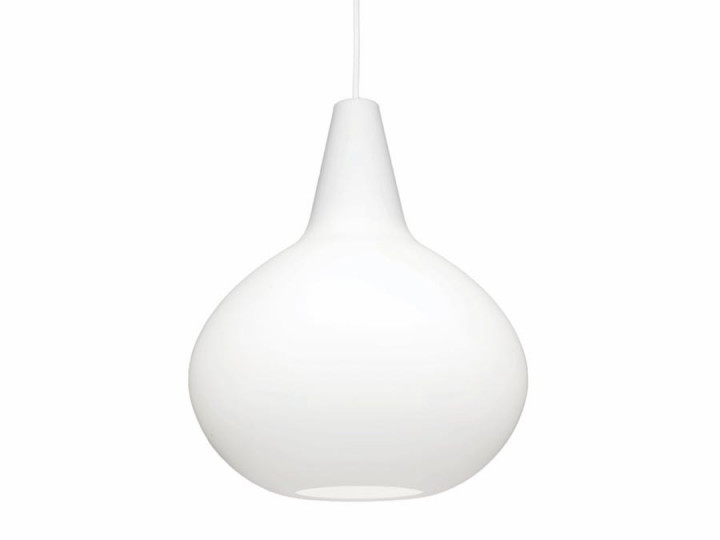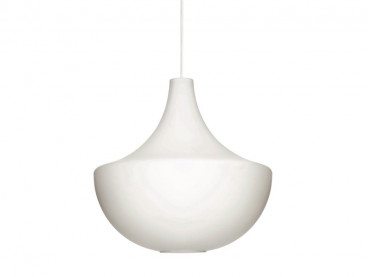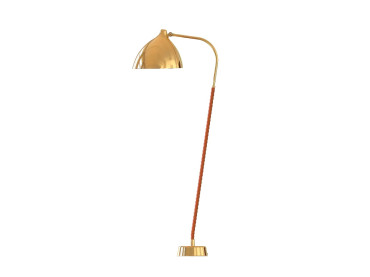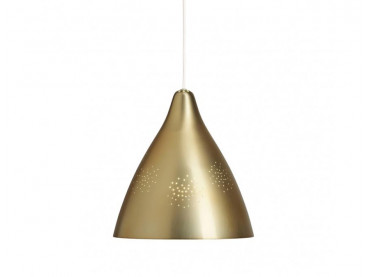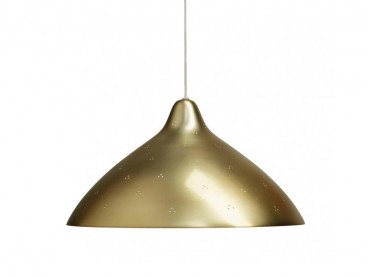Bulbo Pendant. New edition
-
Lisa Johansson-Pape
-
Innolux
- INL05 Delivery time : 2 to 3 weeks
Scandinavian pendant lighjt model Bulbo. New edition.
The Innolux Bulbo pendant lamp designed by Lisa Johansson-Pape consists of an organically shaped glass shade, mouth-blown. Bulbo pear shape filters light through slightly etched glass. This lamp, designed by Lisa Johansson-Pape in the 1950s, was once known as the "round onion" and is one of the greatest commercial successes of the time. Bulb E27, not included.
| Year | 1950 |
| Dimensions | Ø 27 cm. H : 33 cm. Cord lenght : 1,5 m. |
| Material | White opal glass. |
| Style | Classique Neuf |
| Origin | Finland |
| Fournisseur | Innolux |
Lisa Johansson-Pape
Furniture, textile and interior designer
Lisa Johansson-Pape’s career as a designer was long and varied. Johansson-Pape’s career in the design of light fixtures began in 1942 when she designed a number of contemporary design light fixtures for the Stockmann-Orno
design light factory, among others. Johansson-Pape also served as artistic director at Orno. ”It was quite by accident that I became a design light artist. By education, I am a furniture designer, but I had to make lamps during the
war. The light fixtures began to interest me to such an extent that I set aside furniture design. I am slightly more interested in lamps and light than in design. I wish to provide every Finnish household with good light”.
The materials used in the light fixtures she designed included enameled metal, acrylic and glass. Johansson-Pape’s lamp designs always stressed technical functionality and practical use. Lisa Johansson-Pape began to collaborate with the glass blowers at the Iitala glass factory in the 1950s. A new collection of glass lamp designs was born through these experiments. Johansson-Pape designed light fixtures for many public spaces, such as hospitals, churches and ships. Lisa Johansson-Pape’s works represented Finland in many international exhibitions, dating from the 1930s. Her lamps received awards at the Milan Triennials in 1951 with a silver medal and in 1954 with a gold medal in design.
“A lamp is not the actual purpose, but more like an instrument. It must fulfil its purpose as a provider of light, but at the same time it must also satisfy the aesthetic demands. A good light fixture must be simple and its structure and function must be both neat and correct”.

